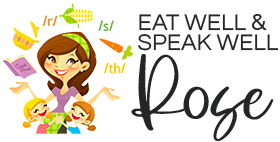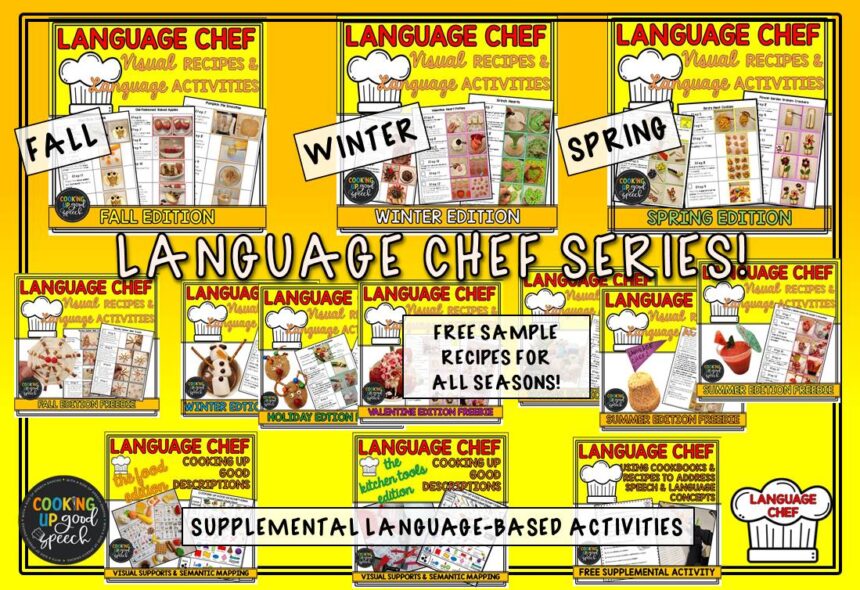
Many of my students have pragmatics/social skills goals in their IEPs related to conversation skills, perspective-taking, flexible/rigid thinking, and identifying problems and solutions. Cooking is an excellent activity for addressing social and pragmatic skills due to its interactive and collaborative nature. Let’s look at several ways cooking can help develop SOCIAL & PRAGMATIC SKILLS!
#1—Cooperation:
When cooking with a group, children learn the value of cooperation and working together as a team. They understand that each person has a role to play, and their contributions are essential to the success of the overall task. When I cook with my students I will often assign different tasks to each individual student, so that they each feel important and essential in completing a step in the recipe. For other tasks, they may have to wait their turn to use a kitchen tool or ingredient. They learn the importance of patience and turn-taking.
#2—Communication:
Cooking involves clear and effective communication between all the participants. Whether it’s following a recipe, asking for help, or sharing ideas, children learn to express themselves and understand the importance of listening to others. I love to watch this unfold naturally and I allow my students the space to communicate with each other, stepping in to direct the flow of the conversation when necessary.
#3–Sharing and empathy:
Cooking often involves preparing food for others, promoting a sense of giving and sharing. Children learn to consider the preferences and needs of others, fostering empathy and understanding. My students will often comment that they know someone at home who would really love to taste the recipe or will ask if we can make additional servings for other classmates and/or teachers. It’s always so great to see how much they selflessly care about others.
#4– Patience and delayed gratification:
Cooking teaches children that some things take time, and they need to be patient for the final outcome. Waiting for a dish to be completed or cooled down helps children practice delayed gratification and self-control. This can be a tough one for kids—as I have witnessed firsthand many times. It’s hard to resist sneaking chocolate chips, marshmallows, grapes, and lots of other yummy foods before the end result is completed. I always let them taste some of the ingredients while we work. It encourages them to try new foods and keeps them motivated to keep working toward the end goal.
#5– Celebrating achievements:
When the cooking process is complete, children get to share their creations with others. This fosters a sense of accomplishment and pride in their abilities, encouraging positive self-esteem. It’s always so satisfying to see my students complete a recipe creation and not only enjoy the end result but experience pride in their accomplishment! When we create recipes, it creates a sense of independence as well—and my older students especially enjoy this feeling and look forward to bringing home the recipe printouts and booklets that we make, so that they can make it all over again for their family members!
If you are an educator thinking about making a recipe in your next classroom lesson or therapy session, or a parent who wants to make cooking into a “teachable moment” in your home kitchen, remember that cooking not only teaches kids life skills but can also be used to strengthen SOCIAL AND PRAGMATIC skills!
Interested in using a COOKING THEME to address communication skills in your classroom or therapy setting? LANGUAGE CHEF can help! LANGUAGE CHEF–The Ultimate Language-Based Recipe Resource allows you to address SOCIAL/PRAGMATIC SKILLS every time you engage in the recipe-making process—whether it’s with an individual student, a small group or a larger group, social interactions are always happening! LANGUAGE CHEF provides so many opportunities to practice LANGUAGE, COMMUNICATION, and SOCIAL/PRAGMATIC skills!
I can’t wait to start “Cooking Up Good Speech and Language” with you and your students!












Leave a Reply